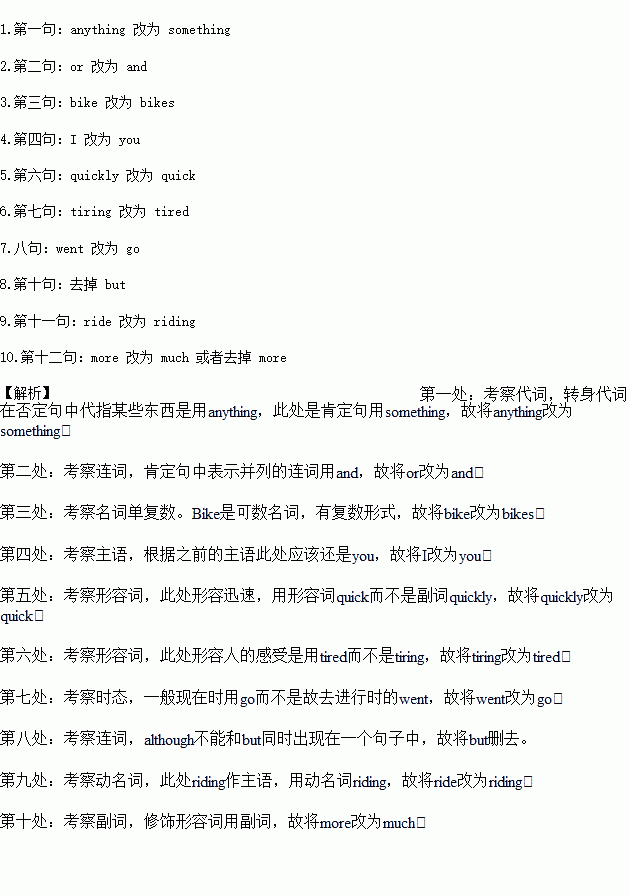题目内容
文中共有10处语言错误,每句中最多有两处,每处错误仅涉及一个单词的增加、删除或修改。增加:在缺词处加一个漏字符号(∧?),并在其下面写出该加的词。删除:把多余的词用斜线(\)划掉。修改:在错的词下划一横线,并在该词下面写出修改后的词。
注意:1.每处错误及其修改均限一词。
2.只允许修改10处,多者(从第11处起)不计分。
Today I’d like to tell you anything about riding a bike in London. If you visit London, you’ll see many buses, cars or bikes. It’s very cheap and quick to use bike. If you take a bus, I often have to wait for an hour or so. Besides, the buses move very slowly. The underground is quickly but expensive and often crowded. I used to travel to work by bus. I was often late, and tiring. Then a friend suggested we went to work by bike. I followed him. Although we went slowly, but we always arrived on time. Taking a bus takes 50 minutes, while ride a bike only half an hour. Now I love riding to work and I feel more better.
 名校练考卷期末冲刺卷系列答案
名校练考卷期末冲刺卷系列答案
